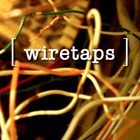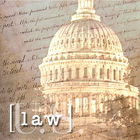
Article I, Section 1, US Constitution: First Amendment to the US Constitution: Seventh Amendment to the US Constitution:
|
NATIONAL SECURITY LETTERS FOUND UNCONSTITUTIONAL AS MEANS OF FORCING UNLAWFUL DOMESTIC SPYING 12 September 2007 A National Security Letter (NSL) is a secret document sent by federal investigators to an entity which is then required to pass along otherwise private information, much of which might not fit within judicial review under the protections of the Fourth Amendment. They are permitted only in cases allegedly linked to investigations of specific terror plots. Now, a federal judge has said the section of the USA PATRIOT Act that allows federal investigators to conscript individual citizens or organizations as domestic spies, in total secrecy under penalty of prosecution, violates First Amendment protections and is an assault on the Constitutional role of the judiciary. Use of NSLs has exploded since the passing of the USA PATRIOT Act, and civil liberties advocates have expressed outrage at what appears to be massive abuse of power. In 2000 there were roughly 8,500 NSLs issued. But after 9/11, their use seemed to proliferate exponentially, with 39,346 in 2003, 56,507 in 2004 and 47,221 in 2005. The NSL functions as a sort of unique set of legal conditions for an individual, who is forced to provide information to the government, even where that act is a violation of existing contracts and of federal law. Their collaboration is secret; even telling one's spouse could carry jail-time and whistle-blower protections had been brushed aside, making it nearly impossible for outsiders to conduct an independent investigation of alleged abuses. The federal court ruling is the latest judicial repudiation of policies enacted by the US government in the wake of the terrorist attacks of 11 September 2001 as excesses violating constitutional law and undermining individual liberties and checks on executive power. Critics of the National Security Letter procedure point out that it rests on principles of state secrecy not provided for in American law and in practice contravenes the basic tenets of the democratic Constitution, at once prohibiting freedom of speech, the right to seek redress for grievances, the right of the accused to know his accuser and the evidence gathered against him. By way of these constraints on Constitutional rights and liberties, the NSL process also undermines the requirement for due process before the judiciary, a right without which American law deems any prosecutorial process to be fundamentally flawed and illegitimate. The NSLs are also said to violate the 4th Amendment protection against arbitrary search and seizure of private documents, the principle that one is innocent until proven guilty and, on an abstract level, the right of habeas corpus (in that the government constrains the movements and freedoms of an individual not even accused of having knowledge of any wrongdoing. [s]
BACKGROUND: The Democrat-controlled US Senate yesterday passed a bill that would authorize the president to not only continue, but to expand his use of extrajudicial wiretapping, a practice ruled unconstitutional last year by the Supreme Court. Analysts suggest that Democrats caved to White House rhetoric, for fear of being considered 'soft on terror'. Civil libertarians say the vote is a dark day for US Constitutional law. [Full Story] FBI DIRECTOR TESTIMONY SUGGESTS GONZALES MISLED CONGRESS ABOUT OPPOSITION TO WIRETAPS FBI director Robert Mueller, the top law-enforcement agent within the Justice Department, testified before that House Judiciary Committee that there was in fact a heated confrontation between senior Justice Department officials and White House aides in 2004, regarding President Bush's warrantless NSA wiretapping program. [Full Story] FMR ACTING ATTORNEY GENERAL SAYS BUSH INTERVENED TO HALT MASS RESIGNATIONS OVER NSA PROGRAM Testifying before the Senate Judiciary Committee, James Comey, former deputy attorney general, who acted as AG during Ashcroft illness in early 2004, said Pres. Bush intervened to halt a raft of resignations in protest over the policy clash. Comey reportedly had to rush to AG Ashcroft's hospital bedside to prevent White House officials from gaining authorization, despite official opposition from Justice Dept. lawyers and then acting AG Comey. [Full Story] ACLU ACQUIRES GOV'T DOCUMENTS SHOWING SURVEILLANCE OF PEACEFUL, LAW-ABIDING GROUPS New information acquired by the ACLU by way of the Freedom of Information Act, shows the FBI and the Joint Terrorist Task Force have been monitoring, infiltrating and spying on innocent, law-abiding individuals and both non-religious and faith-based activist groups whose activities are entirely peaceful and are protected by the First Amendment to the US Constitution. [Full Story] AT&T SUED FOR VIOLATING LAW IN NSA DOMESTIC SPY PROGRAM AT&T was once the nation's telecommunications monopoly, and abuses there led to the break-up of the Bell monopoly and the regulation of telecoms, with the intent of encouraging competition and achieving the goal of forcing providers to serve the customers first. Now, the Electronic Frontier Foundation has filed a lawsuit alleging that the telecommunications giant has violated federal law by assisting the government in spying on innocent Americans without any court authorization. [Full Story] DATA SHADOWS & IMPROBABLE CONSENT Neither contracts nor "terms and conditions" including indemnities disclaimers, can be classified as legislation. They do not make or construct legal limits by themselves. Obvious as this may seem, it is a necessary introduction to the problem of the trade in personal information and "soft surveillance", whereby one is routinely subjected to interrogation, inspection and even physical search, not for having broken any laws or even aroused any reasonable suspicion, but simply because "that's policy". [Full Story] |
|||||||||||||||||||||
|
||||||||||||||||||||||




